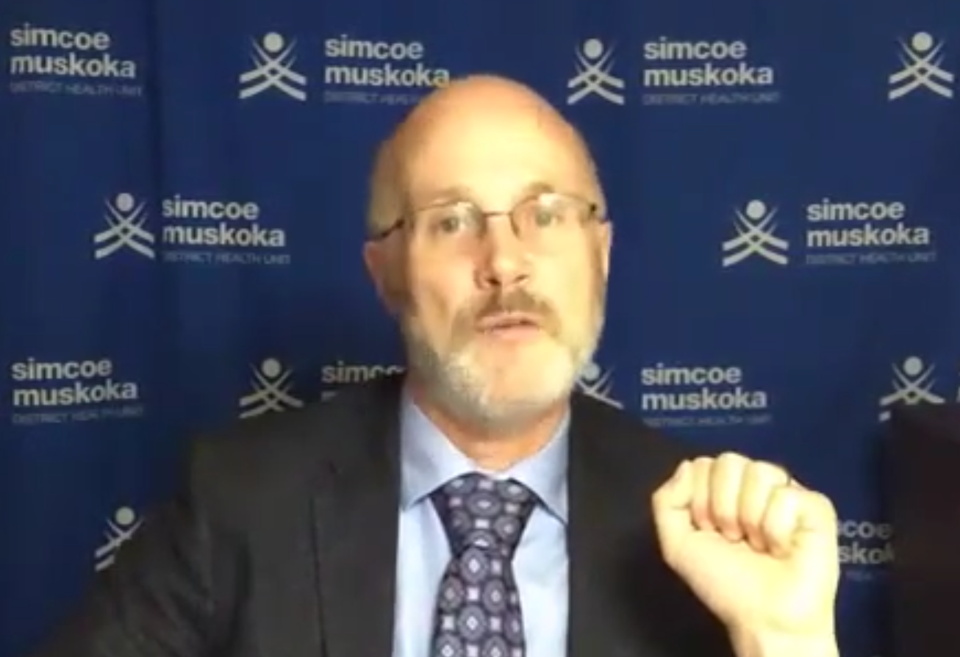Simcoe-Muskoka has its first possible case of the new omicron variant in the region, but public health officials won't say where in Simcoe County it is.
The Simcoe Muskoka District Health Unit announced this afternoon that it's investigating a cluster of COVID-19 cases with a "strong probability" of it being the omicron variant. Early evidence suggests this variant might be more transmissible.
During his weekly media briefing on Wednesday afternoon, local medical officer of health Dr. Charles Gardner said he could not divulge any other information about location due to privacy concerns.
Public health officials have said it's a household cluster in Simcoe County with seven confirmed COVID-19 cases and that the likelihood of it being the omicron variant is "very high."
The health unit says the cluster is linked to travellers who arrived in Simcoe County from Nigeria in late November and that all seven people are currently isolating at home.
Gardner was also unable to confirm the vaccination status of the seven infected individuals, but did note they were all “well enough to be at home isolating” and not in hospital.
Meanwhile, the health unit continues to investigate the local cluster.
“We await genetic sequencing to determine and confirm whether or not this it is omicron… but given the preliminary screening tests done by the public health laboratory system, is indicative of it it likely being omicron," Gardner said. "Given the travel-related link, we are treating it as such."
Public health officials expect confirmation within the next seven to 14 days.
In the meantime, they say they aren’t taking any chances and are following all of the precautions necessary in their management and investigation of the situation.
To date, Ontario has confirmed 31 omicron cases, 19 of which were done with the assistance of a specific screening test that requires the whole genome sequencing for confirmation.
With this new omicron variant “likely” having made its way into the region, Gardner anticipates residents will be concerned and wondering how best to protect themselves.
“In addition to us doing follow-up and requiring isolation for these individuals, my advice to everybody is my standard advice for COVID-19, and that is to obtain a full immunization including a third-dose booster vaccination for those who are eligible when they are eligible," he said. "(That) is the single most important thing you can do to protect yourself and avoid becoming a case, and therefore protecting those around you.”
Gardner also urges residents to continue to monitor themselves and their children for symptoms, isolate and seek testing if anyone develops symptoms. He also asks people to maintain masking and physical distancing in all indoor public spaces.
“All of that standard advice... will hold with regards to the omicron variant as well,” the doctor said. “We don’t yet know just how transmissible this variant is, or the degree to which (vaccines) provide protection, but it is important people get vaccinated because it’s likely it will provide at least some, and may very well provide a high level of protection against the omicron variant.”
Health officials are also still waiting on further research in terms of the severity of the new variant and how virulent it is, said Gardner, as well as information on the likelihood of reinfection for those who’ve previously been COVID-positive.
“Those are still outstanding research questions that will take some weeks before we know that," he said.



